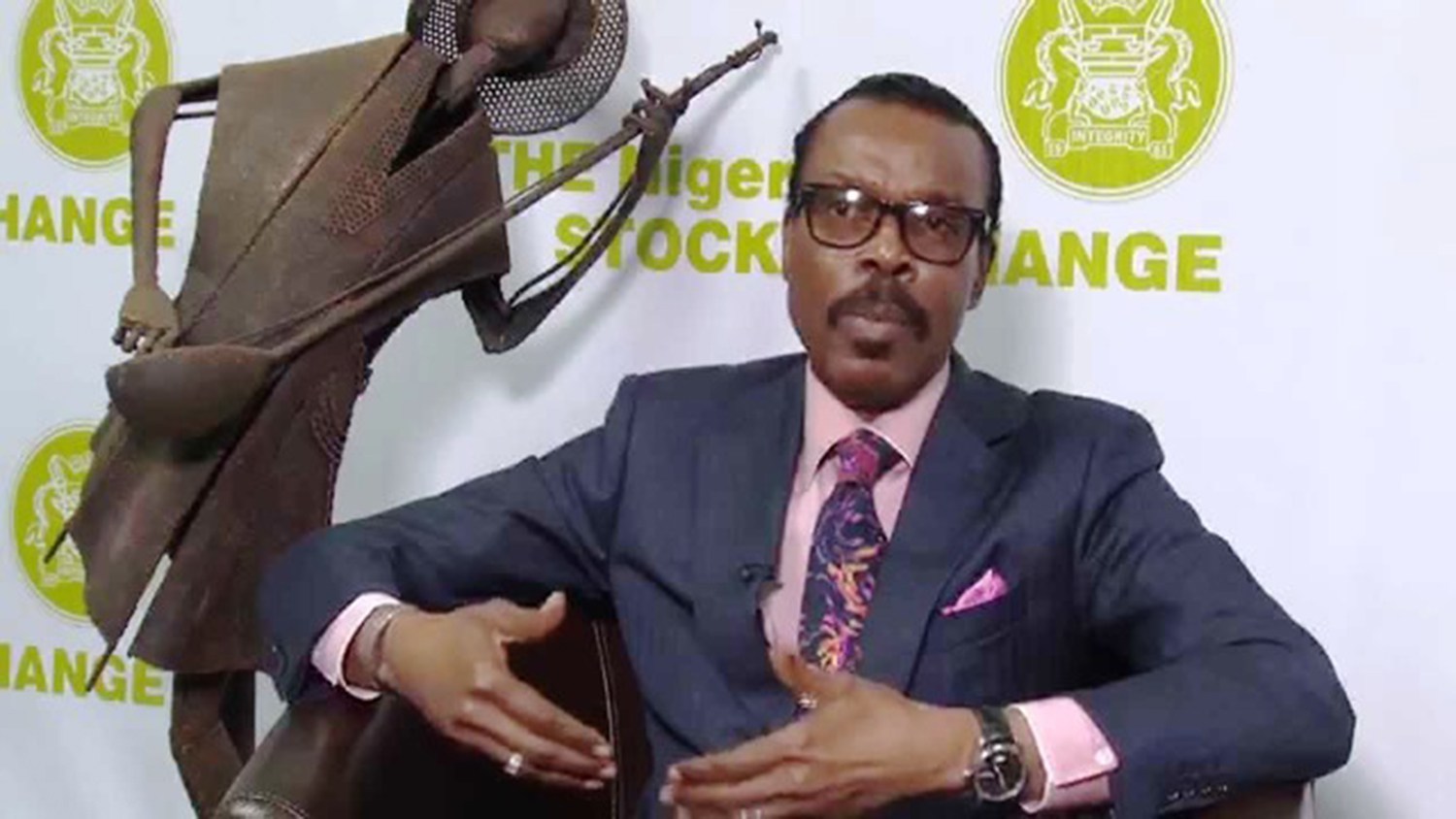
Chief Executive of Financial Derivatives Company Limited, Bismarck Rewane, has stated that huge election spending as well as tax implementation would significantly shape Nigeria’s 2026 economic outlook.
Speaking at the Parthian 2025 Economic Discourse, held in Lagos, on Thursday, he projected that stock market capitalisation will triple by 2027, highlighting the potential listing of the Dangote Refinery as a game changer.
He cited improved investor confidence, new listings, rising corporate earnings, and structural efficiencies as key drivers.
“Nigeria’s stock market capitalisation could soar from the current N91 trillion to N262 trillion in 2026, and N393 trillion in 2027. The potential listing of the N100 trillion–valued Dangote Refinery is expected to be a major contributor,” he said.
He added: “Huge election spending and inflation later, 2026 budget to be more realistic down by 10 per cent, 15 per cent import duty on fuel importation, debt services down by 4 per cent, insecurity and tax reform bills implementation.
“The exchange rate is projected to appreciate and hover around N1450 to N1500/$, foreign reserves expected to boost FX supply and reduce pressure on the naira and inflation-interest rate differential driven by elevated policy rates
“Inflation will continue its downward trend in 2026. Food and core inflation are projected at 20 per cent in 2026. Sustained disinflationary monetary policy with expected further cuts in the benchmark Monetary Policy Rate (MPR).
“GDP growth will maintain a positive momentum in 2026 at 4.1 per cent p.a. Nigeria will experience positive but moderate GDP growth, driven by expanding business activity, productivity gains, and supportive investment sentiment if our projections are correct.”
Also, Chairman of the Committee On Fiscal Policy and Tax Reform, Mr. Taiwo Oyedele, defended the administration’s new policies, insisting that contrary to public perception, the reforms are designed to boost investor confidence, stimulate long-term growth.
Oyedele said the government is not looking for more taxes, but insisted that the government must get it right with capital gains reforms.
He disclosed that recent adjustments to capital gains tax were introduced not to raise revenue but to stabilise the market after a 2022 episode where foreign portfolio investors exited the country, aggravating FX pressures in the country.
He explained that under the new rules investors will be able to claim deductions for FX losses, offset capital losses more transparently, and enjoy tax exemptions.
He added that reforms long demanded by investors are finally being implemented. The event was themed: ‘Reforms to Results: Powering Economic Growth for Shared Prosperity’.
He said: “We’re bringing all of this together. And we said, if you’re exiting, maybe not exiting, if you’re selling up to N150 million a year, not more than 10 million are at gain, you don’t pay any tax. If it’s more than that, but you reinvest, it’s actually a reset.
“It’s because by 2022, the big investors, most of them exited, mostly foreign portfolio investors and compounded our FX problem. So, we said to ourselves, how can we incentivise people who want to stay a bit longer with us and not just come in to play games? So that was how we came up with that idea.
“As part of the comprehensive reform that we have done from January next year, companies will see a reduction in their corporate tax rate from 30 percent to 25 per cent. Anywhere in the world, this will be headline news. The market will be excited. But in Nigeria, that’s not the case. But that’s good news. We don’t really like those ones too much.
“From next year, if you can keep records properly, there’s money for you to be made from next year. From next year, you’ll get input VAT credits on your assets, services, and overhead. Service companies never got this before. That’s a big deal. It’s worth N3.4 trillion based on 2024 collections.
“So, my point to you is that we should be excited about the capital gains because it’s a reform. We’ve taken away returning tax on bonus shares. We removed stamp duties on transfer of shares. We removed the minimum tax on turnover and capital for businesses. That’s a big deal.”
In another major overhaul, he announced that workers in both the public and private sectors will see a reduction – or complete removal – of their Pay-As-You-Earn (PAYE) taxes from January 2026.
“Now, 98 per cent of workers in the private and public sector will either see a decline or complete removal of their PAYE from next year. Those are the real people. The top 2 per cent, who are mostly in this room, are therefore not happy with me, will see marginal increases depending on what they earn.
“What you find in every country is, I make the top rate for individuals to be higher than business. So, you have the natural incentive to operate through a company. So, you pay lower tax. We did the opposite in Nigeria.
“From January next year, that changes. Bread will no longer be VAT exempt, it will be zero rated. What does that mean? You sell the bread with VAT at 0 per cent. Every amount of VAT you have paid in producing that bread is refunded 100 per cent, and that’s huge. So, we’ve done that for food, we’ve done it for education,” he said.
The Group Managing Director, Parthian Partners, Oluseye Olusoga, who urged the Nigerian private sector to actively leverage the African Continental Free Trade Area (AfCFTA), warned that other African nations are positioning themselves to dominate regional markets.
“If we don’t take advantage, we will end up importing what we should be exporting. Investment follows security – and security is everyone’s responsibility,” he said.



